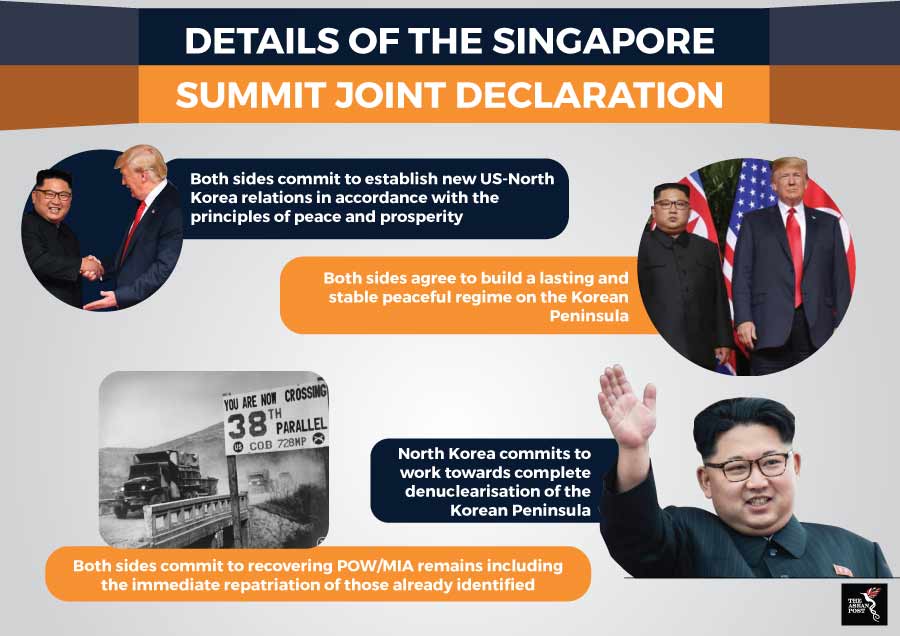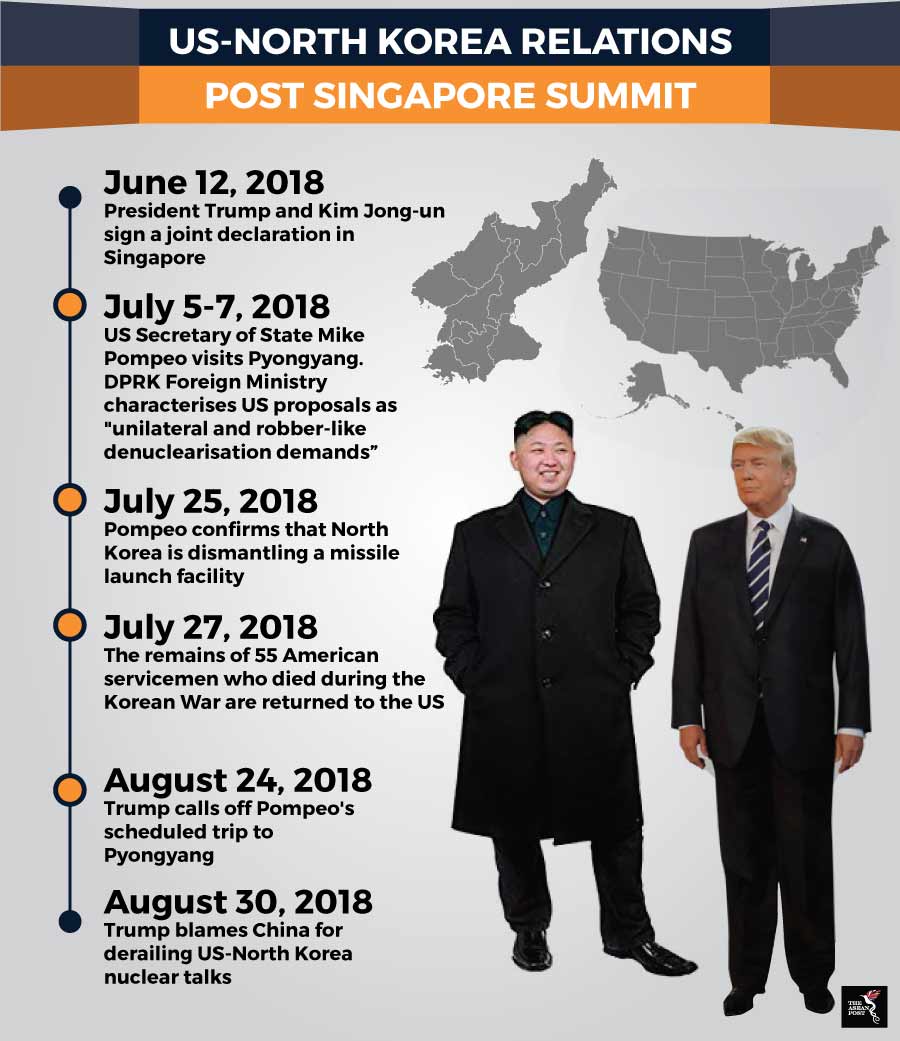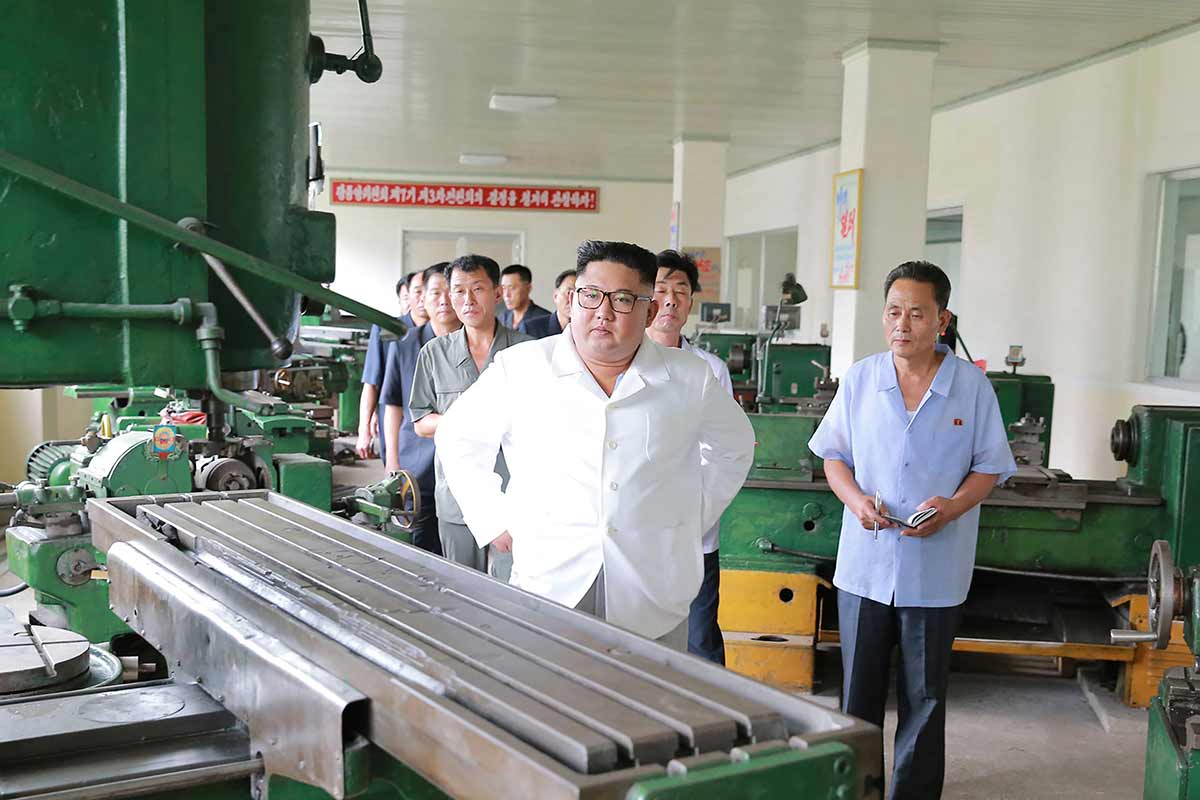When the historic summit between the United States (US) and the Democratic People’s Republic of Korea (DPRK) took place in Singapore earlier this year, many believed the impossible could finally be achieved – peace between the two Koreas and a nuclear free Korean peninsula. However, recent events have revealed that such hopes may still be a pipe dream.
At the end of August, one week before US Secretary of State Mike Pompeo was scheduled to head to Pyongyang for the fourth round of nuclear talks, President Donald Trump abruptly cancelled the visit.
“I have asked Secretary of State Mike Pompeo not to go to North Korea, at this time, because I feel we are not making sufficient progress with respect to the denuclearisation of the Korean Peninsula,” Trump tweeted.
For people who have been following the nuclear talks closely, this may not come as a surprise. Ever since the Singapore Summit in June, the subsequent negotiations between the US and the DPRK have not been smooth. For example, in the first round of talks in Pyongyang, the DPRK’s Foreign Ministry released a statement characterising the US’ proposals as "unilateral and robber-like denuclearization demands.” The statement also claimed that they "go against the spirit of the North-US summit meeting." Meanwhile, the US government argued that the DPRK is not doing its part in keeping with its promise of denuclearisation.

Source: Various
Optimism fading
With the cancellation of the scheduled nuclear talks, it seems that the promise of the declaration made at the Singapore Summit is now starting to fade.
The current impasse could actually be rooted in what was agreed upon at the Singapore Summit. Some – including Trump – saw the declaration made at the summit as a deal, but in reality it was merely a declaration which set out principles to guide the negotiation process. The declaration outlined four basic goals – renewed US-DPRK relations, the establishment of a “peace regime” on the peninsula, complete denuclearisation and the recovery of prisoners of wars.
Trump also added that there were other agreements made that were not included in the declaration. However, with how vague things were left and worded, the difference in interpretation has led to the situation the two countries are currently in.
Joseph Yun, a senior adviser to the Asia Group and the US Institute of Peace opined in the Washington Post that both, Kim Jong Un and Trump have a fundamentally different understanding of what was agreed in Singapore. For the Trump administration, the process of denuclearisation is simple – completely denuclearise and lifting of sanctions, the possibility of a peace deal and so on will follow suit. While the North Koreans feel that it should be done in tandem, that they will slowly denuclearise and the US will also follow through on its promises step-by-step.

Source: Various
There are also reports in the mainstream US press that Trump had promised North Korea that he would officially end the Korean War and sign a peace declaration. Despite the Korean War ending in 1953, the end of the war has never been officially declared. This is one of the major reasons why North Korea arms itself with nuclear weapons, to prevent military aggression from the US.
According to US media, DPRK officials have sent a strongly worded letter to Pompeo, saying that denuclearisation could not proceed because “the US is still not ready to meet (North Korean) expectations in terms of taking a step forward to sign a peace treaty."
Essentially, the stalling of talks could boil down to a failure of diplomacy in Singapore. Most of the blame can be levelled against Trump and his team. Firstly, for its failure to secure an official nuclear and missile test moratorium from the DPRK. Secondly, for not being clear in its terms for denuclearisation. The DPRK has always remained intransigent when it comes to denuclearisation – unless security and peace is guaranteed, it would not completely denuclearise. So, the onus is on the US to make sure its terms are clear and airtight. In addition to that, abruptly cancelling nuclear talks, does not help.
Trump’s usual aggression will not help when it comes to seeking peace in the Korean peninsula. For any actual progress to be made since the Singapore Summit, Trump must learn the delicate dance of diplomacy.
Related articles:
Trump, Kim summit ends with signing of joint declaration
Will North Korea follow in Vietnam’s footsteps?
